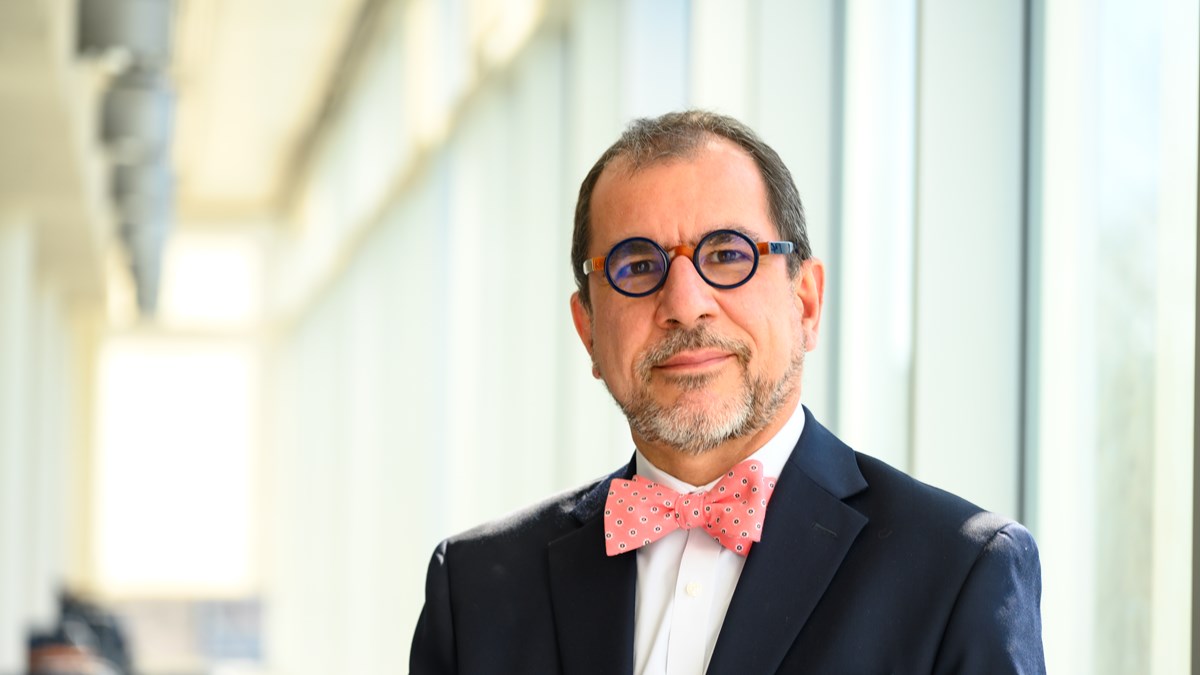Ashkan Emadi, M.D., Ph.D.

“I am dedicated to building an academic and clinical department and team that provides state-of-the-art cancer care, inclusive of investigative programs, to the diverse population served by the WVU Cancer Institute.”
As the inaugural chair of the Department of Medical Oncology, what are some of your goals for the department’s future?
I am dedicated to building an academic and clinical department and team that provides state-of-the-art cancer care, inclusive of investigative programs, to the diverse population served by the WVU Cancer Institute. I am also focused on improving access for underserved communities.
Can you discuss some of your current research endeavors?
As a scientist utilizing my Doctor of Philosophy degree in organic chemistry, my work targets glutamine metabolism and dependency in acute myeloid leukemia, pancreatic adenocarcinoma, mesothelioma and brain tumors, including both isocitrate dehydrogenase (IDH) mutant astrocytoma and IDH wild type glioblastoma. I have designed and conducted several novel state-of-the-art clinical trials focusing on amino acid metabolism in cancer.
I have also created methodologies for synthesizing compounds with potent anti-HIV and anti-cancer activities.
How has this research impacted your work as a physician?
Within my lab, I direct research combining my knowledge of the cellular pathways I’m targeting with a complete familiarity and deep commitment to the patients I’m treating.
Utilizing my experience as an oncology physician-scientist, I have comprehensive knowledge and hands-on experience in all stages of cancer drug discovery, from chemical synthesis and in vitro and in vivo studies to all phases of clinical trials, and drug approval by regulatory agencies.
As an academic researcher, what other types of work have you been involved in?
I have had the opportunity to author, co-author or edit nearly 200 research articles, presentations in national and international scientific meetings, book chapters and three novel fully illustrated books, including a unique Cancer Pharmacology textbook. This work has been published in journals, such as New England Journal of Medicine, Blood, Leukemia, American Journal of Hematology, British Journal of Haematology and JAMA.
As the Alexander Bland Osborn Endowed Chair and Distinguished Professor of Medical Oncology, you also have the opportunity to work with students. What have you enjoyed about this aspect of your career?
Training the next generation of scientists is one of my life missions. I have served as a mentor for physicians and basic scientists at all stages of training and have spent several hundred hours on personalized direct mentoring of nearly 40 college students, interns, Ph.D. and medical students, internal medicine residents and Hematology/Oncology fellows and junior faculty. I am proud that a vast majority of my mentees are now thriving academic investigators, teachers and clinician-scientists all around the United States.